Programs: High School | Adult Skilled Trades | Industry Professional Development
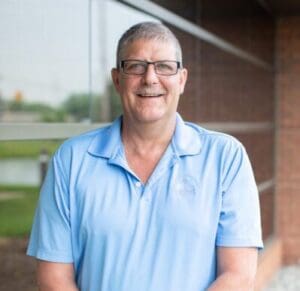
Tell us about how you first got into the commercial construction industry.
I wasn’t what you would call the best student in high school, haha. I was never too interested in ‘book learning’ and wound up dropping out. (I did return and get my High School diploma later however.)
My first job in the industry was doing sandblasting work for a painting contractor. At first, it was a little intimidating; the work was hard and I had to learn quickly. But even in that first experience, I began to really enjoy looking at what I had built during the day and feeling proud of a job well done.

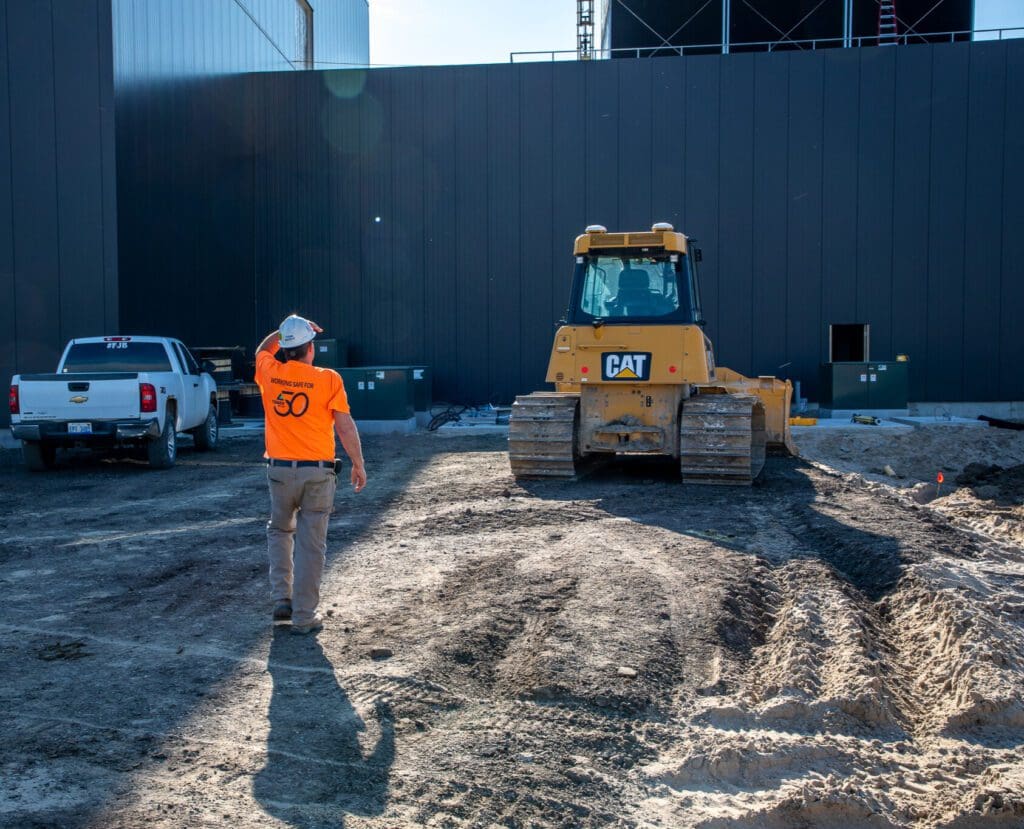
My job is not to know all the answers, but to know where to get the answers.
When did you realize that you wanted to have a full career in construction.
For me, it all started when I got hired at Ritsema Associates in 1988. I had a family at that point and realized I wanted to have a career – not just a job.
I started as a laborer but quickly recognized the opportunities to move up. And the more on-the-job skills I picked up, the faster leadership rewarded the work I did with promotions up the ladder.
It became very clear to me that, in the skilled trades, if you have the mindset and the work ethic, then the sky’s the limit! After just five years I was running a small crew on my own.
At this point in my career, I now work as a superintendent at Lakewood Construction where I manage projects from start to finish. This means leading the team and finding solutions to the day-to-day challenges.
what’s an example of your day-to-day work as a superintendent?
Let’s say you’re working on a large building project and the blueprint shows a sink in the corner of the room. But, it’s directly below a load-bearing beam (because what you see on paper doesn’t always translate perfectly to the mechanics of the jobsite.)
With this setup, a plumber isn’t able to complete their work.
So my role is to identify the problem before the work begins, find a sustainable solution and, most importantly, clearly communicate that vision to the team.
What is a construction project that you’re proud of?
One project I’m particularly proud of is the one I’m working on right now; building a new Gentex Corporation manufacturing facility here in West Michigan. It’s a 300,000 sq. ft. building and definitely the biggest job I’ve ever done. You know it’s at a large scale when you pour the footing for one column that supports the building and you need two cement trucks!
The project is also a complex one as, in addition to the sheer size of it, there are a lot of impressive mechanical and structural elements needed.
One of my favorite things about projects like this is the experience of working together with members of other skilled trades on the jobsite. The lead electrician and plumber are especially very talented problem-solvers and I love learning from their expertise. It’s great to collaborate with other West Michigan companies to build a beautiful new structure that both our teams and our clients are proud of.

One of my favorite things about projects like this is working together with members of other skilled trades on the jobsite.
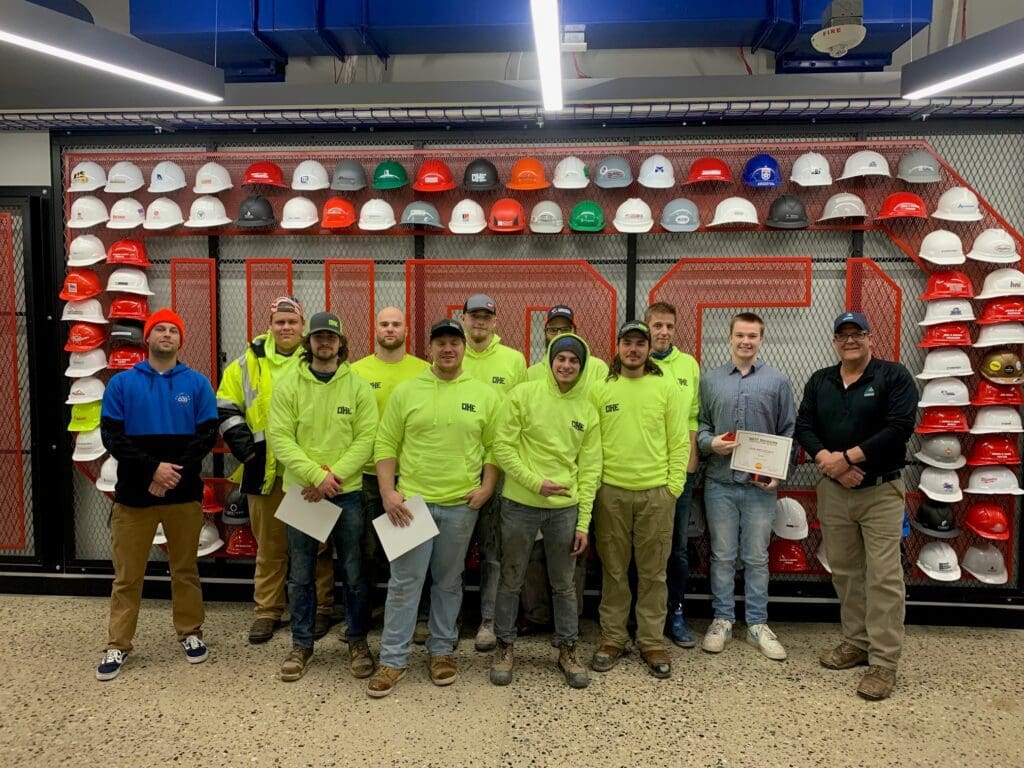
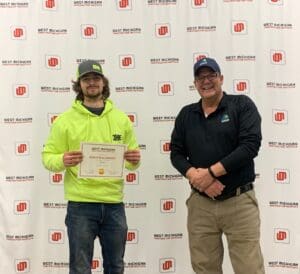
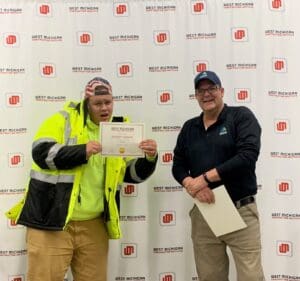
What do you see as the most important skills and training younger construction professionals should have to be successful?
- You have to master the basic skills like being able to accurately read a tape measure. They’re the ones that are the most important because they are the foundation that everything else is built on.
- Having a responsible work ethic and being willing to learn. If you can do this, you’ll find yourself running a crew and moving up the ladder much faster than you might expect.
- The industry is getting more techie. The industry has moved bag phones in cars to onsite computers to robots doing layouts/finishing drywall. It’ll only keep going so a good understanding of tech will definitely help you.
- Leave your phone in your car!
If you could give your younger self a piece of advice, what would it be?
Work hard and buy property.
Are you interested in becoming a WMCI instructor?
If you are an experienced construction professional passionate about sharing your knowledge with the next generation of skilled tradespeople, then we’d love to connect!

